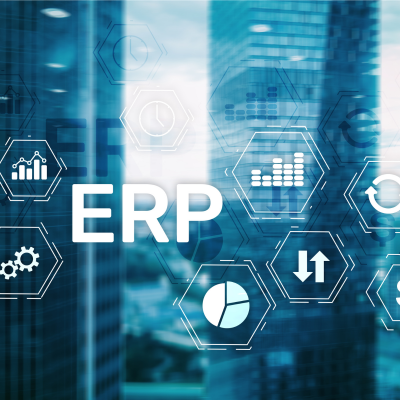Choosing the Right ERP Partner: Key Considerations for Businesses in the GCC
July 27, 2024
Choosing the right ERP (Enterprise Resource Planning) partner is a critical decision for any business, especially in the GCC (Gulf Cooperation Council) region, where the market dynamics are unique and competitive. As a Microsoft Partner specializing in CRM and ERP implementation, we understand the intricacies involved in selecting a partner who is not only technically capable but also trustworthy and supportive. Here are the key factors to consider when choosing an ERP partner.
1. Technical Expertise and Certifications
Microsoft Dynamics 365 Specialization
Ensure that the ERP partner has a strong specialization in Microsoft Dynamics 365. This involves not only familiarity with the platform but also having certified professionals who understand the nuances of Dynamics 365, especially in the context of migrating from older systems.
Proven Track Record
A partner with a proven track record of successful implementations in the GCC region is invaluable. Look for case studies, client testimonials, and success stories that demonstrate their ability to deliver on complex ERP projects. This should include specific examples of implementations.
Deep Industry Knowledge
Understanding the specific requirements of your industry is crucial. A partner with experience in your sector can provide tailored solutions that meet your unique needs. This includes knowledge of regulatory requirements, industry standards, and best practices.
2. Comprehensive Support Services
Robust Support Infrastructure
A reliable support team is essential for the smooth operation of your ERP system. Ensure that the partner offers comprehensive support services, including 24/7 availability, dedicated support staff, and a clear escalation process.
Post-Implementation Support
Post-implementation support is as critical as the implementation itself. Verify that the partner offers ongoing support, including training, troubleshooting, and system upgrades. This ensures that your ERP system remains up-to-date and continues to meet your business needs.
Customer Service Excellence
Evaluate the partner’s customer service approach. This includes responsiveness, communication skills, and the ability to understand and address your concerns promptly. A partner who is committed to customer satisfaction will go a long way in ensuring the success of your ERP implementation.
3. Trustworthiness and Reliability
Transparent Processes
Transparency in processes and pricing is a hallmark of a trustworthy partner. Ensure that the partner provides clear and detailed proposals, timelines, and cost estimates. This helps in avoiding hidden costs and unexpected delays.
Strong References
Request references from past clients to get an insight into their reliability and performance. Talking to other businesses that have worked with the partner can provide valuable information about their strengths and weaknesses.
Financial Stability
A financially stable partner is less likely to face disruptions that could affect your project. Ensure that the partner has a solid financial standing, which indicates their ability to invest in resources and support long-term commitments.
4. Customization and Scalability
Tailored Solutions
Your business is unique, and so should be your ERP solution. Look for a partner who can provide customized solutions that align with your specific business processes and goals. This involves understanding your workflows and designing a system that enhances efficiency and productivity.
Scalability
As your business grows, your ERP system should be able to scale with it. Ensure that the partner has experience in implementing scalable solutions that can adapt to your changing needs. This includes adding new modules, integrating with other systems, and accommodating an increasing number of users.
5. Strategic Vision and Innovation
Future-Proof Technology
The ERP landscape is constantly evolving, and it’s important to choose a partner who stays ahead of the curve. Look for partners who invest in research and development, and who are proactive in adopting new technologies and trends.
Strategic Partnership
Your ERP partner should be more than just a service provider; they should be a strategic partner who understands your long-term goals and helps you achieve them. This involves providing strategic advice, identifying opportunities for improvement, and helping you navigate the future of ERP technology.
Choosing the right ERP partner is a critical decision that can significantly impact the success of your business. By focusing on technical expertise, comprehensive support services, trustworthiness, customization, and strategic vision, you can ensure that you select a partner who not only meets your immediate needs but also supports your long-term growth and success. As Microsoft Partners with extensive experience in CRM and ERP implementation, particularly in transitioning from AX to Dynamics 365, we are committed to providing the highest level of service and support to businesses in the GCC region
